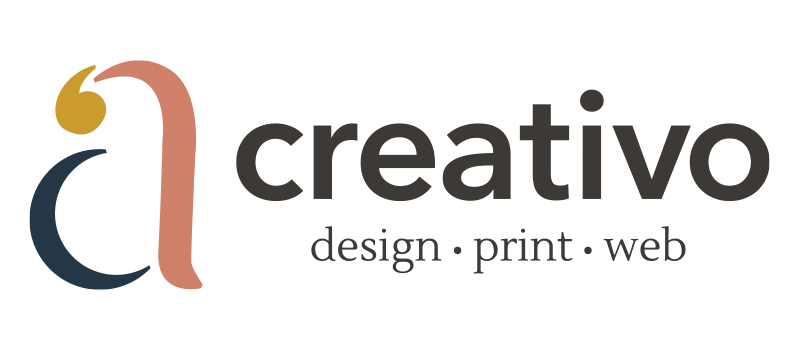Leveraging marketing to communicate ESG efforts
In today’s rapidly changing world, environmental, social, and governance (ESG) concerns have emerged as significant factors shaping consumer preferences, investor decisions, and stakeholder expectations. With a growing awareness of sustainability and ethical practices, businesses that prioritize ESG considerations stand to gain a competitive edge.
However, simply adopting responsible practices is not enough. Effectively communicating these commitments and achievements to a wider audience is crucial. This is where marketing plays a pivotal role, enabling businesses to showcase their ESG initiatives, build trust, and drive sustainable growth.
Leveraging marketing to communicate ESG efforts
In today’s rapidly changing world, environmental, social, and governance (ESG) concerns have emerged as significant factors shaping consumer preferences, investor decisions, and stakeholder expectations. With a growing awareness of sustainability and ethical practices, businesses that prioritize ESG considerations stand to gain a competitive edge.
However, simply adopting responsible practices is not enough. Effectively communicating these commitments and achievements to a wider audience is crucial. This is where marketing plays a pivotal role, enabling businesses to showcase their ESG initiatives, build trust, and drive sustainable growth.
Here are 10 ways to leverage marketing to communicate your EGS efforts:
When it comes to leveraging marketing to communicate ESG (Environmental, Social, and Governance) commitments, there are several effective strategies to consider. Here are some of the best ways to communicate your company’s ESG commitments through marketing:
1. Authentic Storytelling:
Craft compelling narratives that showcase your company’s ESG journey, highlighting the initiatives you’ve undertaken and the positive impact you’ve made. Use storytelling to engage your audience emotionally and create a connection with your brand.
2. Transparency & Reporting:
Share transparent and comprehensive reports that detail your ESG practices, goals, and progress. Provide measurable data and metrics to demonstrate the effectiveness of your initiatives. Regularly update your stakeholders on your ESG performance and improvements.
3. Integrated Branding:
Integrate your ESG commitments into your overall brand identity and messaging. Incorporate ESG-related visuals, slogans, and values into your marketing materials, website, and social media presence to reinforce your dedication to sustainability and responsibility.
Consider transitioning traditional print collateral to digital communication pieces that can be shared through email marketing, social media platforms, websites, resident portals, online advertising, etc. as a means to minimize waste and further extend your corporate environmental efforts.
4. Thought Leadership & Content Marketing:
Position your company as a thought leader in the ESG space by producing high-quality content. Publish articles, blog posts, white papers, and case studies that educate and inform your target audience about ESG topics. Share insights, best practices, and innovative approaches that can inspire others.

5. Partnerships & Collaborations:
Collaborate with like-minded organizations, or industry experts to amplify your ESG efforts. Engage in joint initiatives, sponsorships, or events that align with your sustainability goals. This can help increase your reach and credibility in promoting your commitments.
6. Engaging Social Media Presence:
Utilize social media platforms to share ESG-related updates, stories, and achievements. Use engaging visuals, videos, and infographics to make your content more shareable and relatable. Encourage user-generated content and conversations around sustainability to foster a sense of community.
7. Employee Advocacy:
Empower and involve your employees in your ESG communications. Encourage them to share their experiences, volunteering activities, and personal commitment to sustainability through internal communications and social media. This can enhance your brand’s authenticity and credibility.
8. Stakeholder Engagement:
Actively engage with your stakeholders, including customers, investors, employees, and local communities. Seek feedback, address concerns, and involve them in your decision-making processes related to ESG initiatives. Communicate your commitment to long-term sustainability and the value you place on stakeholder relationships.
9. Engaging Sponsorship Campaigns & Events:
Participate in relevant industry events, conferences, or trade shows focused on ESG topics. Sponsor or host events or sponsorship campaign that align with your values and commitments. This can increase your visibility and provide opportunities for networking and collaboration.
For example, the Canadian CRB Program launched its 3rd annual Conscious-Living Box Giveaway. This national campaign aims to educate the public that our individual environmental efforts matter, especially in our multi-residential communities, and that together we can make a difference. For industry members that are actively engaged in environmental, social, and governance (ESG) reporting, the Canadian CRB program provides impactful support to these endeavours. As a GRESB-approved sustainability program, it provides members with quantifiable measures for incorporating ESG factors into daily operations and supports their efforts with residents, the community, and government stakeholders.
To garner public attention, one hundred entrants will be randomly chosen to receive a specially curated box filled with purposeful and sustainable products from Canadian brands.
Take a peek inside the box with Maria — Watch Now!
10. Adherence to Recognized Standards & Certifications:
Obtain and highlight certifications such as B Corp, LEED, ISO, or Canadian Certified Rental Building (CRB) Program standards related to sustainability and responsible business practices. These third-party certifications can validate your ESG commitments and provide an extra layer of credibility.
Remember that genuine commitment and consistent actions are key. Marketing efforts alone cannot substitute for tangible ESG performance, so ensure that your actions align with your communications to build trust and credibility with your stakeholders.
Are you looking to drive your business forward?
We provide a full-service strategic approach that allows you to get the most out of your marketing budget. Connect with us about your upcoming project!

